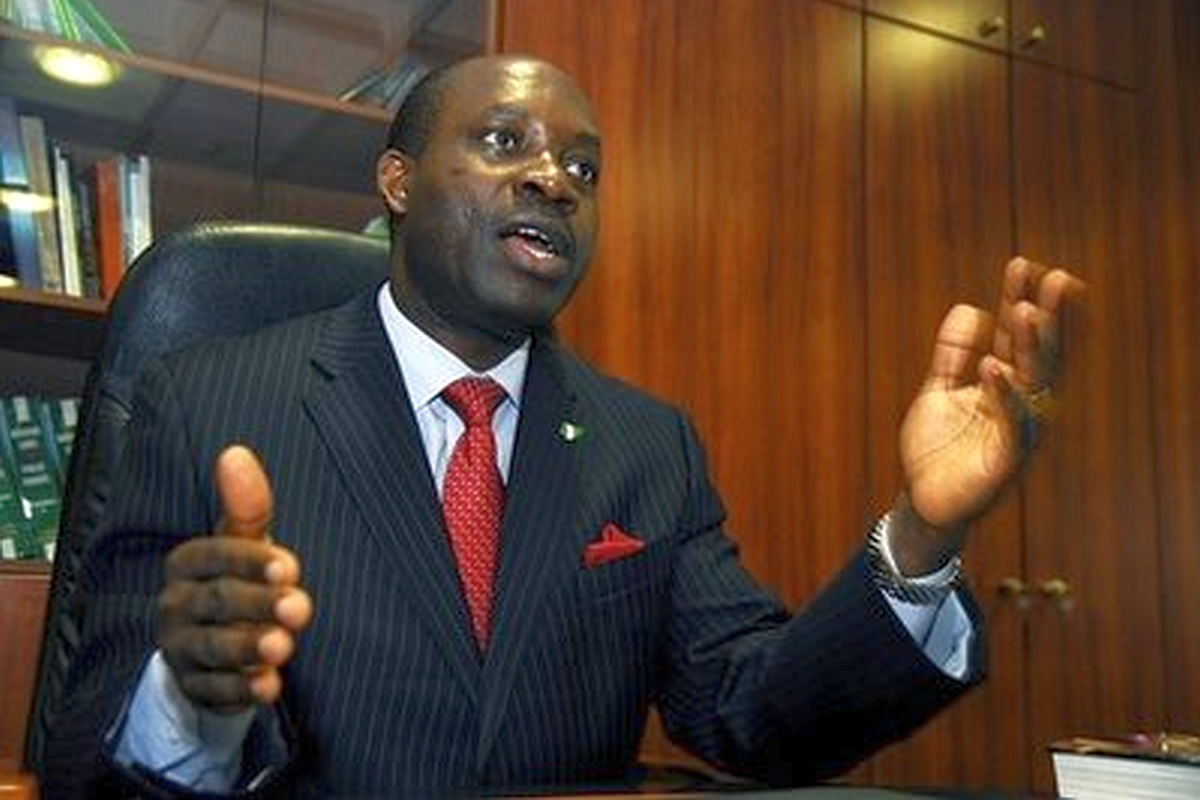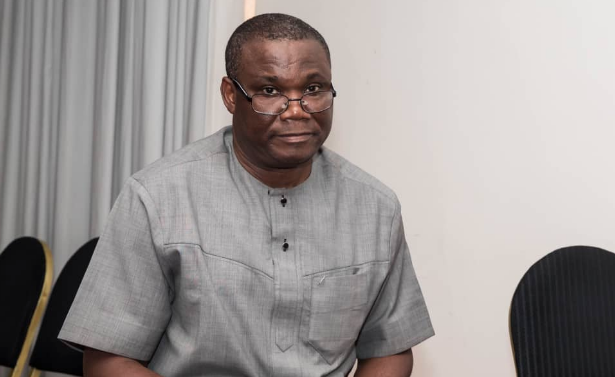What first catches your attention in this book is its unique titling. What has leaving the tarmac got to do with the expected subject of the Book or with the personality of its Author. but you are patient knowing very well that there would be some sort of tie.
The straight to the point mannerism of the recollection holds you from the very start with the introduction by Former President Olusegun Obasanjo. The quick question from him if the content was accurate. In response, the author replies in the affirmative leading to the influential statesman’s assertion that he must have then stepped on some toes, since every true story comes with the good, the bad and the ugly.
This immediately excites your tastes buds as you cannot wait any longer for the ugly in the book.
Very early in the Book, you begin to link the aforementioned titling to the very meat that is his discuss. The author narrates his turmoil in missing his flight back to school due to the endemic corruption and inefficiency that characterized the aviation industry as at that time. He makes bold to state and you will all agree that this cankerworm permeates the system leading to all sort of dislocation and inefficiencies. The link is cleverly woven into the story of this Book and his forays in business. At every conjecture, the experience as a young secondary school leaver at the Tarmac is thrown in and used as fuel to ensure that once again, he would not be left at the tarmac.
Advertisement
The challenges that come with operating in a heavily regulated environment controlled by strong mutants in this wise the CBN Governor, the constant struggle to align or at best position a driving personal and corporate vision to the often times constantly moving pieces that is public policy especially at the level of fiscal and monetary controls begins to give even the reader headache talk less of a duo that had imposed on themselves some onerous task of building an internationally respectable financial brand.
The prose is simple, sweet and engaging. Aig speaks very carefully and guardedly and moves from topic to topic with the ease of a ballerina. As he mentions the issues and you begin to want to dig deep, he moves very elegantly to the next position and because the prose is engaging and free flowing you are grabbed with the new story forgetting that you did not really get the meat of the last story.
My most engaging moment was the meeting between Aig, Herbert and their bosses at GTB. This was highly anticipated by me as I started reading the Book. They had gone very far in the acquisition process and had raised considerable amount of money and were coasting to the point of no return when this meeting held. I was expecting more details, more gist but as his style in this book that very engaging and history making meeting was all but glossed over. I think it was handled in a paragraph or two and we were immediately taken away to some other aspect of the story.
Advertisement
I would have wanted a fly on the wall description of that meeting. Was Aig scared, was Herbert shaking, did Fola scream, did he beg. Where there threats, was it a shouting match. Did the duo kneel down and say ‘don’t vex’? Tthis book didn’t give me that gist thereby missing the only real drama in the story.
Did this Book really tell us how to buy a Bank in Africa or how a bank was even bought in Africa, I will say not too well. The acquisition of Access Bank was dealt with in a hurry and even the role of BGL the mercurial Investment Bank led by the late influential Albert Okumagba was also dealt with in a flash. I will suspect that BGL people will not find this part very exciting as the story of the acquisition is stuff that is passed down generations in BGL.
Aigboje shows his stuff with performance immediately after the bank is acquired. His confidence grows as he talks about the value chain strategy. A strategy he attributes the initial success to. From MTN to Dangote, the strategy enabled the nascent Bank capture huge market share from these conglomerates, stabilizing it and justifying the confidence reposed on both he and Herbert by critical stakeholder groups. A confidence the man at the Banking Supervision of the CBN took almost forever to build.
This book is a simplified work book for those of us who would like to go into the very tricky act of revamping a dying or dead brand. I tried and failed woefully ending up in an EFCC cell. For Aigboje and Herbert to take a run of the mill brand and build it into what it is today is not only remarkable but almost something of a miracle in this terrain. The meat of the Book is all about this.
Advertisement
Here Aigboje finds himself as he floats and flies in his descriptive turn. He takes us through it all – visioning, clarity, Board building, Risk Management, Capital management, strategy, Human capital and much more importantly his partnership with Herbert who came out in this Book as dependable and bringing tremendous value to the table making the succession plan almost seamless,
You do not sense any friction between the duo. You sense a clear understanding and mutual respect. You do not sense ambition on the part of Herbert and you see a careful portrayal of the respect Aigboje has for Herbert in this Book. This to me is the success of Access Bank far and above every other thing you put in to build the brand.
One thing that kept jumping at me as I read, was the outsider mentality that never left Aigboje as he narrated his experience. The meetings at the CBN where he averred that some people already had an inkling into some of those earth shifting policies, his fear of being left on the tarmac again but you come out of every summon to the CBN with relief that once again he was prepared as the clarity shown through. The issue of the clearing bank being a point in case. You will have to read the book very carefully at this point if you want details.
Then as you were about to consign yourself to the beauty of the narrative that is the building of a Bank, getting to start your review with a harsh critique of the book not being about buying any African Bank you are suddenly dropped at the feet of a second acquisition. The Intercontinental Bank one.
Advertisement
Here Aigboje has found himself. His experiences during the first acquisition coming to the fore. His pen getting stronger as he analyses the reasons behind the acquisition, the process itself, the advisers on the transaction and post-acquisition challenges- human capital, technology, integration, market perception, regulatory issues you find a more than ready Aigboje.
But here too the story doesn’t do much for an entry level Investment Banker looking for practical experience on M&A but goes ahead to give a world class narrative on Post acquisition management of super complex structure.
Advertisement
He finally closes the book on his thoughts and actions in the area of sustainability. Aigboje has been phenomenal in this area, working assiduously to support, entrench and work with like minds both locally and internationally in ensuring the very best in class push towards sustainability. This I want to dare say may have driven his resolve to leave Access Bank at the time he did, which was a clear two years from when he should have.
This book in my estimation cautiously opened Aigboje to his readers. He was careful to keep the reader in the realm he wants them to be which is the topic of the Book. Buying a Bank and not other more exciting areas like his personal life, his regrets, his family life. Etc. Only once was his wife and children mentioned and this was as an illustration in trying to drive home a point during his take on work life balance.
Advertisement
The only other time was in the first chapter in a discussion with his mother. Aigboje successfully guides his privacy and keeps his formality intact and almost warns you to stay on topic. You will not see Aigboje relax in this book, you will not see him eat at his favorite restaurant or know the kind of music he loves to listen to. This is not the book I hope he will write that one some time.
In conclusion, despite my issues with the titling this was a wonderful book. It took me less than 24 hours to finish its 217 pages but another three days to sit down to write this review because I was challenged as to what angles to tackle it from.
Advertisement
It was a beautiful read, strong clarity, its facts withstanding stress test of accuracy thereby giving it the authenticity it truly deserves.
I give it a five star and would be recommending it not only for budding Investment Bankers and vison driven Leaders but to the general population as it carefully explains the ethos of what I want to call a followership driven renaissance in our society in the face in the woeful reliance on tepid leadership. A powerful read.
Views expressed by contributors are strictly personal and not of TheCable.
Add a comment







